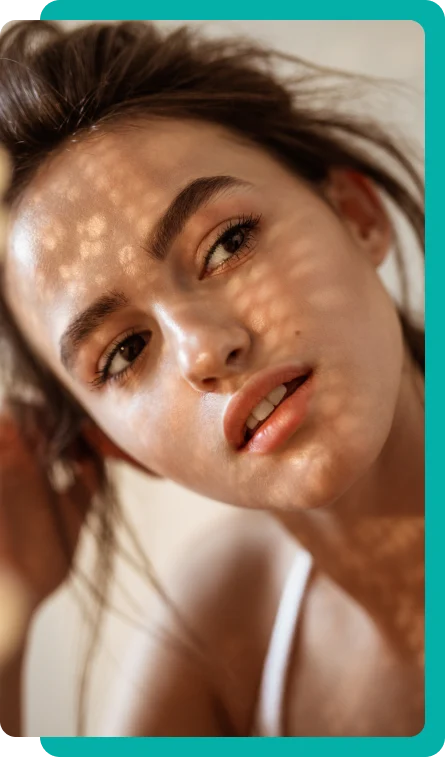For Patients
About
For Providers
Locations
Blog
Contact
Menu
One area that filler injection patients often request to improve is the chin. Since chin augmentation with volumizing fillers can easily add contour and definition to the chin, this is a relatively easy procedure for an experienced injector. However, a patient's concerns don't necessarily stop there: since dermal filler treatment isn't permanent, a question that they often have is how long will it take before they need to come in for another application.
So how often do you need to get chin fillers? The answer to this is a bit difficult since the effects of chin filler will depend on the specific type of filler used in your treatment. On average, you can go anywhere from 6 months to 2 years before needing another chin filler injection, though the variety of different brands/cosmetic injections can greatly affect the longevity of your results.
The reason why chin fillers need re-application is that dermal filler injections are not a permanent cosmetic treatment: while they're a popular treatment for other methods like plastic surgery, they're not designed to last forever. This is mainly because the active ingredients (or the filler material) used in dermal filler injections are usually compounds that are already found or easily accessed by your body.
This is important because if your dermal filler is detected as a foreign substance by your system, it triggers anything from an allergic reaction to erythema to compensate. Dermal filler injections avoid this by using biocompatible compounds, but it does come with the tradeoff that they need to be re-injected as your body processes them over time.
Fortunately, with the variety of dermal filler brands, you can avoid these filler horror stories by taking a few steps of your own to make sure your filler lasts as long as possible. With careful application and some changes to your lifestyle, you can make it more likely that your chin filler will last comfortably longer than 6 months.
Dermal fillers can dissolve in your system over time, but that doesn't mean that there aren't things you can do to slow down that process. While the most significant factor in deciding how long your fillers last is the type of filler you got, there are some things you can do on your end that will help with your results:
Sun exposure - or specifically, UV damage - is one of the most damaging things your skin can be exposed to. Prolonged sun exposure can break down your skin cells, cause dry skin, and even make you more susceptible to certain conditions like skin cancer.
Given that your chin is usually exposed to the sun, any dermal filler injections in the area will also be affected by UV damage. Most of the time, the immediate consequence of this is that your dermal fillers will dissolve faster, which means more frequent re-application.
You can avoid this by:
Hydration is another important factor in keeping healthy skin. Hydrated skin is more resilient to damage, can repair itself more quickly, and overall looks more vibrant and younger compared to dry skin. A considerable part of your body's composition is liquid, and it’s better to keep it balanced that way.
But being hydrated is especially important for dermal filler patients since some of the most popular brands of dermal filler injections use hyaluronic acid filler as their primary ingredient. This type of filler is usually water-based and can be drastically affected by the lack of moisture in the skin. Even if that wasn't the type of filler you got, keeping your skin hydrated is still a good habit to have.
Stay hydrated by:
The body gets the majority of its nutrients and other necessary compounds from whatever you put inside your system. The healthier you are, the more likely your dermal filler will stick around longer since your body doesn't need to immediately identify and process it out of your system.
This doesn't just apply to the food that you eat - any substance that you put inside your body can drastically affect the longevity of your dermal fillers. That's why most cosmetic and medical professionals recommend that people change their diets once they get dermal filler, especially to improve collagen production and strengthen their tissue.
Some things you can look into include:
While there are a lot of different dermal filler brands, only a few are FDA-approved for chin augmentation. These types of fillers all use different active ingredients in their formula, so there are some differences in how long they'll last. Here are the fillers that you might consider for your treatment and how long they last:
Keep in mind that each of these filler brands also costs differently depending on how long you'll get the treatment, so evaluate your finances accordingly so you can budget the costs long-term. Typically, short-term fillers like hyaluronic acid need somewhat frequent reapplication but cost less; others like Sculptra don't need that much reapplication but can cost a lot more.
One last factor to consider before getting chin fillers long-term is choosing the best provider for the job. For most applications of dermal filler - especially for defined and contoured areas like the chin - the treatment is more art than science. Your provider needs to have a clear understanding of your facial anatomy, how the filler works, and your desired results to end up with an outcome that you'll be happy with.
In most cases, finding an experienced and qualified dermal filler provider can be enough to give you the results that you're looking for. But if you're looking to benefit from dermal filler injections long-term, you should find one that offers you a detailed consultation about what to expect and what will happen during your injections.

Chin filler typically doesn't need frequent re-application, especially if you've gotten your initial treatment with an experienced injector. However, the type of filler you got during your procedure can play a significant factor in how often you'll need to come back for more treatments.
Dermal filler injections are a staple service at Dr. Lanna Aesthetics, where we use different types of filler to address a variety of cosmetic concerns. Whether it's facial rejuvenation, addressing wrinkles and deep lines from aging, or correcting a weak chin, there's a non-invasive enhancement that can help you get closer to your aesthetic goals.
For more information about dermal fillers, the type of injectable fillers we use, and other concerns about your chin filler injection, book an initial consultation with us now. You can contact us online via our website or call us at (969) 565-7539.

Join Dr. Lanna & Dr. Doshi for a Transformation
Unlock the possibilities with our certified facial and oculofacial plastic surgeries. Attend our free webinar to find out how we can tailor solutions for you, with financing available to fit your budget.
